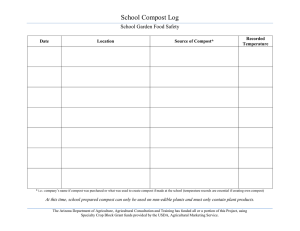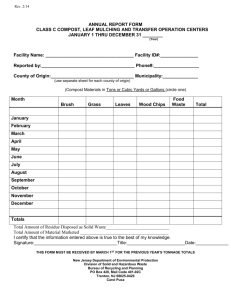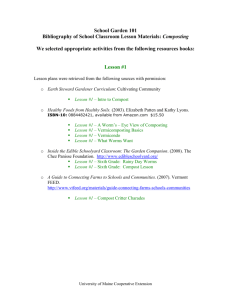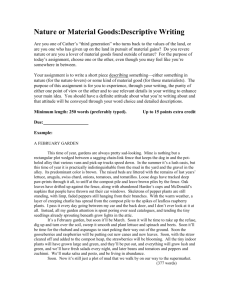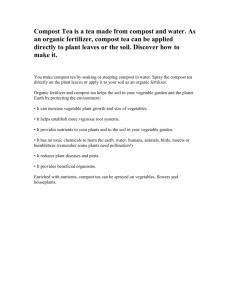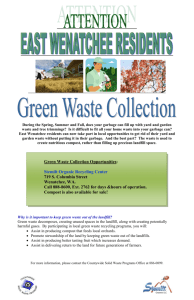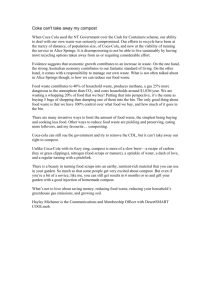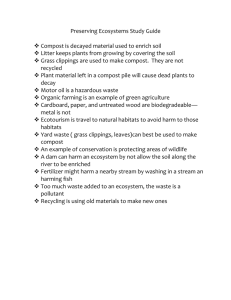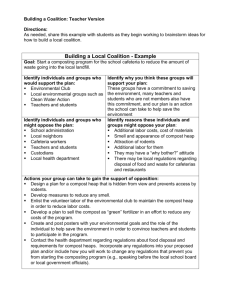Garden Myths: practices and products The ABC’s of my educational program
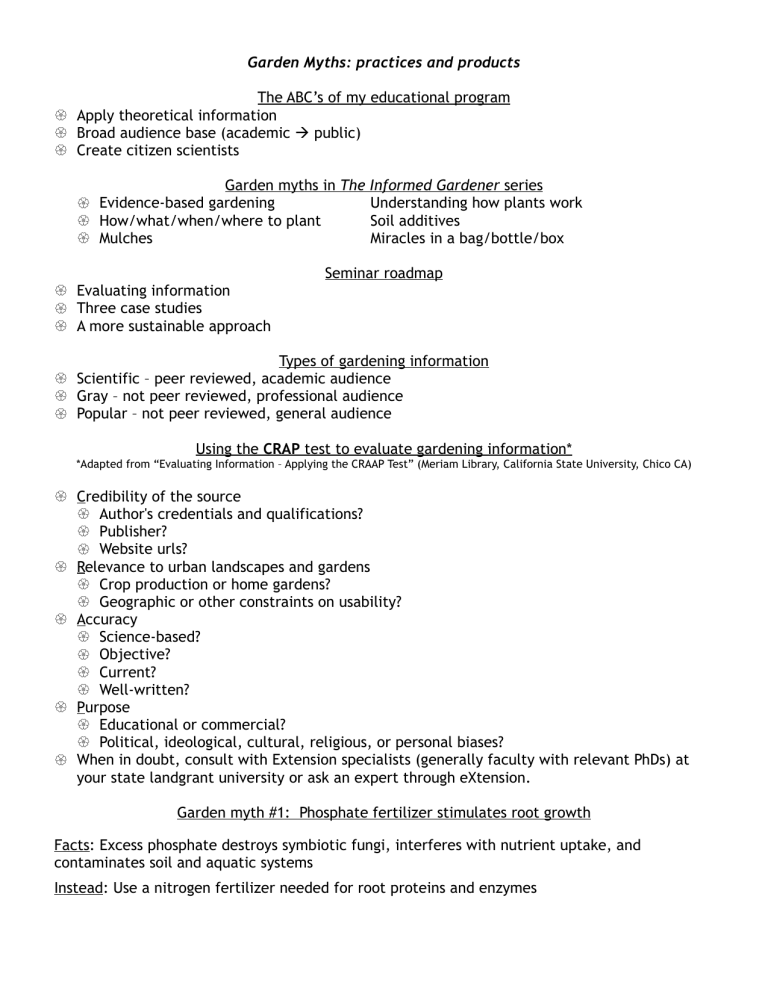
Garden Myths: practices and products
The ABC’s of my educational program
Apply theoretical information
Broad audience base (academic public)
Create citizen scientists
Mulches
Garden myths in The Informed Gardener series
Evidence-based gardening
How/what/when/where to plant
Understanding how plants work
Soil additives
Miracles in a bag/bottle/box
Seminar roadmap
Evaluating information
Three case studies
A more sustainable approach
Types of gardening information
Scientific – peer reviewed, academic audience
Gray – not peer reviewed, professional audience
Popular – not peer reviewed, general audience
Using the CRAP test to evaluate gardening information*
*Adapted from “Evaluating Information – Applying the CRAAP Test” (Meriam Library, California State University, Chico CA)
Credibility of the source
Author's credentials and qualifications?
Publisher?
Website urls?
Relevance to urban landscapes and gardens
Crop production or home gardens?
Geographic or other constraints on usability?
Accuracy
Science-based?
Objective?
Current?
Well-written?
Purpose
Educational or commercial?
Political, ideological, cultural, religious, or personal biases?
When in doubt, consult with Extension specialists (generally faculty with relevant PhDs) at your state landgrant university or ask an expert through eXtension.
Garden myth #1: Phosphate fertilizer stimulates root growth
Facts: Excess phosphate destroys symbiotic fungi, interferes with nutrient uptake, and contaminates soil and aquatic systems
Instead: Use a nitrogen fertilizer needed for root proteins and enzymes
Garden myth #2: compost tea fights plant diseases
NCT = Non-aerated Compost Tea
Requires no aeration; contains anaerobic microbes and nutrients
ACT = Aerated Compost Tea
Requires constant aeration; contains aerobic microbes and nutrients
Will revert to NCT if not aerated
How does compost tea work?
Contains microbes (primarily bacteria) that theoretically compete with or kill harmful microbes.
If a leaf or root is colonized by beneficial microbes, harmful ones cannot take hold
What is the science behind compost tea?
NCT studies
In general, mixed results in the lab and the field in controlling disease
ACT studies
ACT less effective than NCT in controlling pathogens
ACT not only was ineffective in preventing apple scab, but in some cases made it worse
Health concerns about compost teas
ACT can contain high levels of E. coli and Salmonella
Yard waste compost has tested for higher pathogens than manure compost
Molasses in the mix worsens the problem
Scientific summary on compost tea
There is no science supporting the use of ACT on turf and landscape materials
ACT is not registered as a pesticide and cannot legally be recommended or applied as one
ACTs have been demonstrated to harbor human pathogens, including E. coli
Conclusion: Aerated compost teas are an expensive and energy-wasteful “extra step” with no proven benefit to landscapes
Garden myth #3: Epsom salts create lush, healthy plants
Epsom salts, or magnesium sulfate (MgSO
4
), originally obtained by boiling down mineral waters at Epsom, England. Dissolved, they make bath water feel “silkier”
None of the claims for Epsom salts in home gardens and landscapes are based on research
Have soil tests done first to establish plant nutrient needs
What you should do instead
Have soil tests done before adding chemicals or amendments
Select plants that are known to do well in your area
Plant many species; diversity in landscapes increases their ability to resist pests and disease
Install plants properly; woody plants should be bare-rooted to ensure establishment
Protect landscape soils with organic mulch; this helps plants resist pests and disease
For more information:
Dr. Linda Chalker-Scott, WSU Associate Professor and Extension Urban Horticulturist
Email: lindacs@wsu.edu
Website: http://www.theinformedgardener.com
;
Blog: http://www.gardenprofessors.com
Books: http://www.sustainablelandscapesandgardens.com
